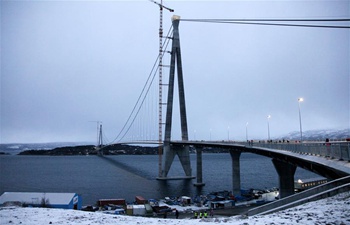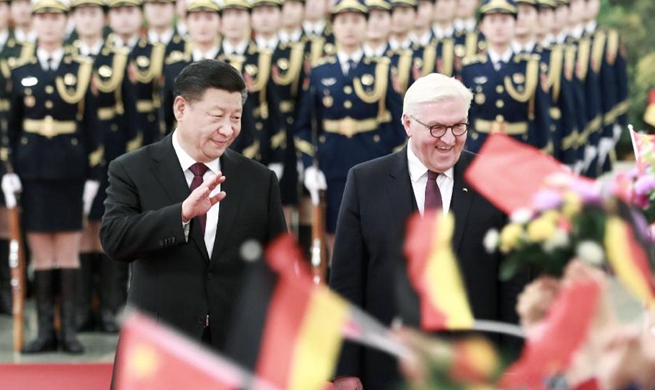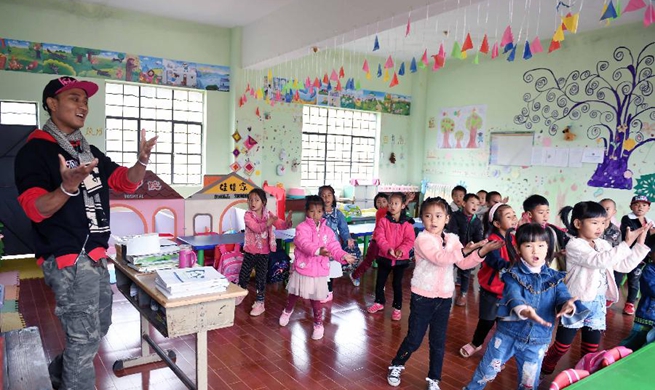KATOWICE, Poland, Dec. 10 (Xinhua) -- Many of the world's largest energy-consuming countries have significantly improved their renewable energy regulations since 2010, said a new World Bank report released here on Monday.
The number of countries with strong policy frameworks for sustainable energy more than tripled - from 17 to 59 - between 2010 and 2017, said the report.
According to RISE 2018, a World Bank report charting global progress on sustainable energy policies, progress was even more marked in energy efficiency, with the percentage of countries establishing advanced policy frameworks growing more than ten-fold between 2010 and 2017.
RISE 2018 measures policy progress in 133 countries on renewable energy, energy efficiency, electricity access, and access to clean cooking - the four target areas of UN Sustainable Development Goal 7 (SDG7), which calls for achieving access to affordable, reliable, sustainable and modern energy for all by 2030.
Among the countries covered by RISE, only 37 percent had a national renewable energy target in 2010. By 2017, that had grown to 93 percent. By 2017, 84 percent of countries had a legal framework in place to support renewable energy deployment, while 95 percent allowed the private sector to own and operate renewable energy projects.
Over the same period, the share of countries that had put in place national legislation on energy efficiency rose from 25 percent to 89 percent, according to the report.
However, there are still significant barriers to global progress on sustainable energy, said the report.
While countries continue to be focused on clean energy policies for electricity, policies to decarbonize heating and transportation - which account for 80 percent of global energy use - continue to be overlooked, it said.
"Policy matters. RISE 2018 confirms the numbers that make it clear that policy is a leading indicator of the world's sustainable energy transition," said Riccardo Puliti, senior director for Energy and Extractives at the World Bank.
But the report also contains a warning: that without accelerated adoption of good policies, and strong enforcement, the world's climate goals and SDG7 are at risk, he noted.
Among the four SDG7 target areas, clean cooking continues to be the most overlooked and underfunded by policymakers, said the report.
While the report finds some evolution in policy frameworks since 2010, there has been little progress on standard-setting for cookstoves or on consumer and producer incentives to stimulate adoption of clean technologies.
"There is a great opportunity now for countries to learn from each other to accelerate the uptake of good policies," said Puliti.
The World Bank report was released here during the 24th Conference of the Parties (COP24) to the United Nations Framework Convention on Climate Change.
The two-week conference, which runs until Friday, aims to finalize the implementation guidelines and provide clarity on how to carry out the Paris deal fairly for all participating countries.
Michal Kurtyka, president of the COP24 and state secretary of Poland's Ministry of Energy, told Xinhua that China has been developing effective solutions to tackle climate change, an example for other countries in this regard.
Thanks to increased investment in green energy, China's carbon intensity, or the amount of carbon dioxide emissions per unit of gross domestic product, in 2017 declined by 46 percent from the level in 2005, meeting the target ahead of schedule of a 40-45 percent drop by 2020.
"Given the size of the economy, and even the path and the rapidity of development, it (China) is one of the fastest growing energy markets. So it is a very important impact on the world in terms of investment capacity but also in terms of example," he added.













